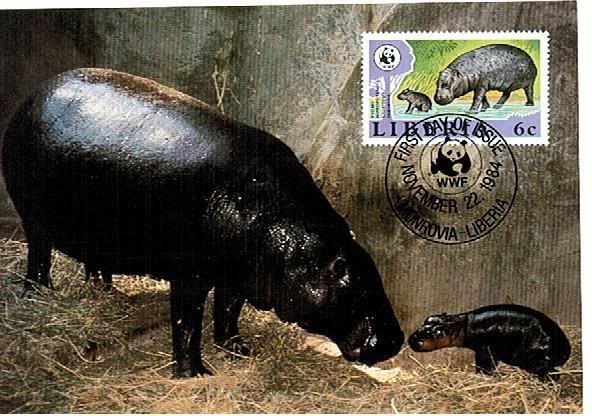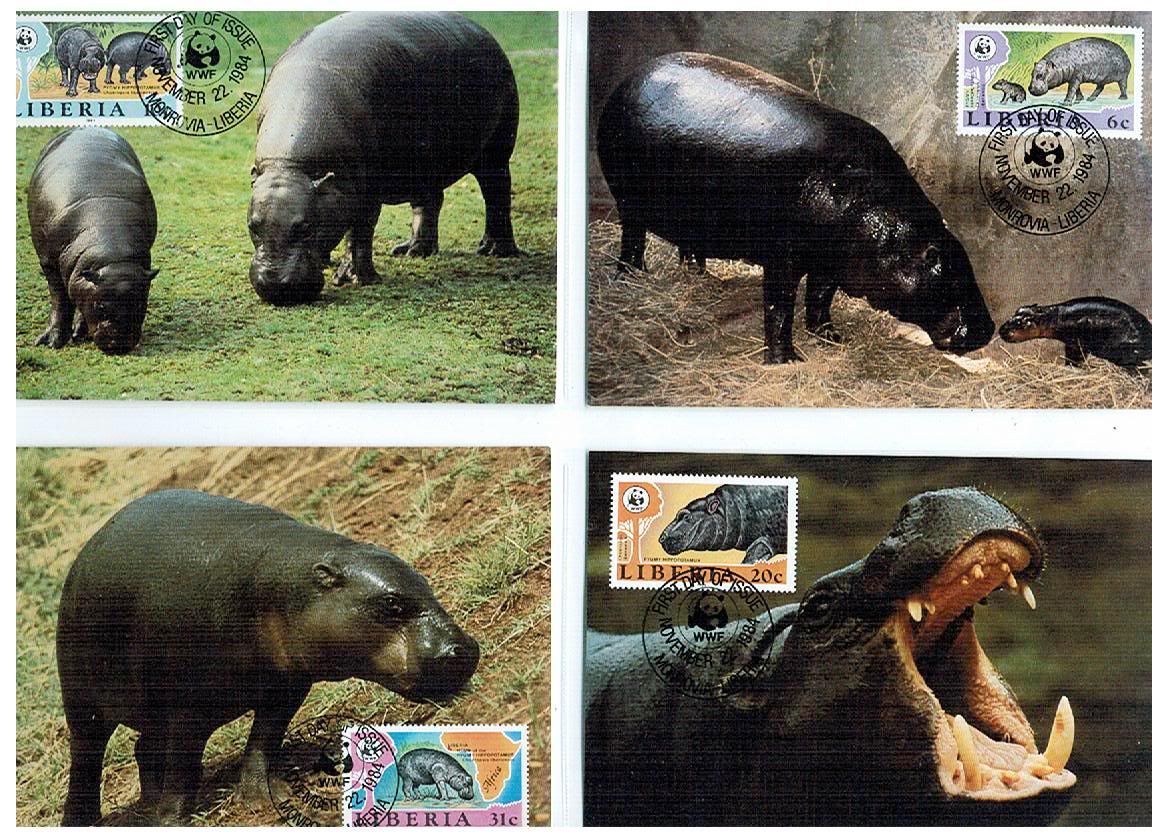Beware, safari-goers!
"Aggression
Hippopotamuses are by nature very aggressive animals, especially when young calves are present. Frequent targets of their aggression include crocodiles, which often inhabit the same river habitat as hippos. Nile crocodiles, lions, and spotted hyenas are known to prey on young hippos.[50] Hippos are very aggressive towards humans, whom they commonly attack whether in boats or on land with no apparent provocation.[51] They are widely considered to be one of the most dangerous large animals in Africa.[52][53]
To mark territory, hippos spin their tails while defecating to distribute their excrement over the greatest possible area.[54] Hippos are retromingent, likely for the same reason.[55]
Hippos rarely kill each other, even in territorial challenges. Usually a territorial bull and a challenging bachelor will stop fighting when it is clear that one hippo is stronger. When hippos become overpopulated, or when a habitat starts to shrink, bulls will sometimes attempt to kill infants, but this behavior is not common under normal conditions.[49] Some incidents of hippo cannibalism have been documented, but it is believed to be the behavior of distressed or sick hippos, and not healthy behavior.[8]"
"Adult hippos cannot swim and are not buoyant. When in deep water, they usually propel themselves by leaps, pushing off from the bottom. They move at speeds up to 8 km/h (5 mph) in water. Young hippos are buoyant and more often move by swimming —propelling themselves with kicks of their hind legs. Adult hippos typically resurface to breathe every 3–5 minutes. The young have to breathe every two to three minutes.[8] The process of surfacing and breathing is automatic, and even a hippo sleeping underwater will rise and breathe without waking. A hippo closes its nostrils when it submerges.""Even though they are bulky animals, hippopotamuses can run faster than a human on land. Estimates of their running speed vary from 30 km/h (18 mph) to 40 km/h (25 mph), or even 50 km/h (30 mph). The hippo can maintain these higher speeds for only a few hundred meters.[8]"
I don't have maximum cards with the regular hippo species, so here are MCs with Pygmy Hippopotamus species:
==================
Happy PFF (Postcard Friendship Friday)!
Please visit: http://thebestheartsarecrunchy.blogspot.com/





